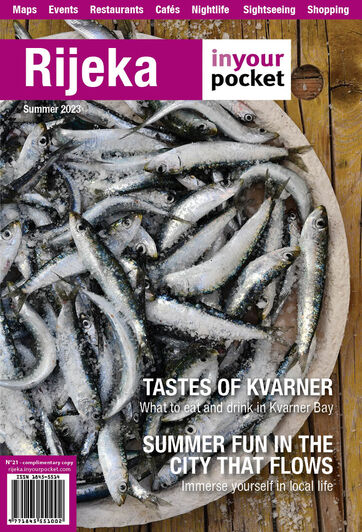Basics
Climate
The region surrounding Rijeka and Opatija falls within Primorsko-Goranska County, which is divided into three geographic regions: the coastal belt, the uplands region and the islands.
The uplands region (known as Gorski kotar) is thickly forested with a wealth of flora and fauna and a large national park, Risnjak. With no polluting industry and very sparsely populated, this region has sparkling-clean air and a sub-Alpine climate. In the summer months, this is a great place to enjoy refreshing breezes and cool nights – a good night’s sleep is guaranteed!
The coastal region occupies a crescent-shaped belt encompassing the gulf of Rijeka and the Vinodol channel. It stretches from the foot of Mount Učka, skirting the hills that fringe Gorski kotar to the north and northeast. Here, a mild and pleasant Mediterranean climate is tempered by the proximity of the mountains. In the winter months the strong, cleansing bura wind blows from the north. There’s a considerable amount of rain in winter, and snow is not unknown. This temperate climate results in a proliferation of trees and plants that makes this coastline so attractive and the air so healthy.
The island region is divided into two island groups. These comprise Cres, Lošinj and a number of smaller islands in the west, and an eastern group including Krk and Rab and several uninhabited islets. The climate on the islands is warmer and drier than on the mainland, and the environment no less pleasant for that. The four largest islands just mentioned enjoy more than 217 clear days on average every year. The sea temperature during the summer months is an enjoyable 26°C, while in the winter experienced sea swimmers brave bracing waters at 18°C.
Disabled Guests
All public parking areas have marked spaces for disabled drivers. In Rijeka most major junctions are equipped with signal-controlled pedestrian crossings, 49 of which have audible signals enabling blind and partially-sighted pedestrians to cross safely.
The City of Rijeka provides transport services for disabled residents and tourists through the Autotrolej transport company. Please call 0800 11 66 Monday – Friday from 07:00 to 14:00 to arrange services, which run from 07:00 to 22:00 Monday – Thursday, and from 07:00 to 23:00 Friday – Sunday. Services run each day of the year, including public holidays.
Transport services cover the city of Rijeka, and it is also possible to arrange a ride to the following public health institutions outside the city: the thalassotherapy facilities in Opatija and Crikvenica, the orthopaedic clinic in Lovran and the psychiatric hospital in Lopača. More information (Croatian only) on www.autotrolej.hr.
Most beaches have facilities for disabled bathers, including wheelchair access, disabled toilets and ramps for entering the sea. Licenced lifeguards are on duty on busy public beaches. Some hotels have rooms which are fully adapted for disabled guests, while many restaurants, swimming pools and campsites have wheelchair access.
Refine your search
Choose Categories
Alternative medicine
Clinics & Hospitals
Dentists
Spa & Wellness
Choose Amenities
Credit Cards
Submit




